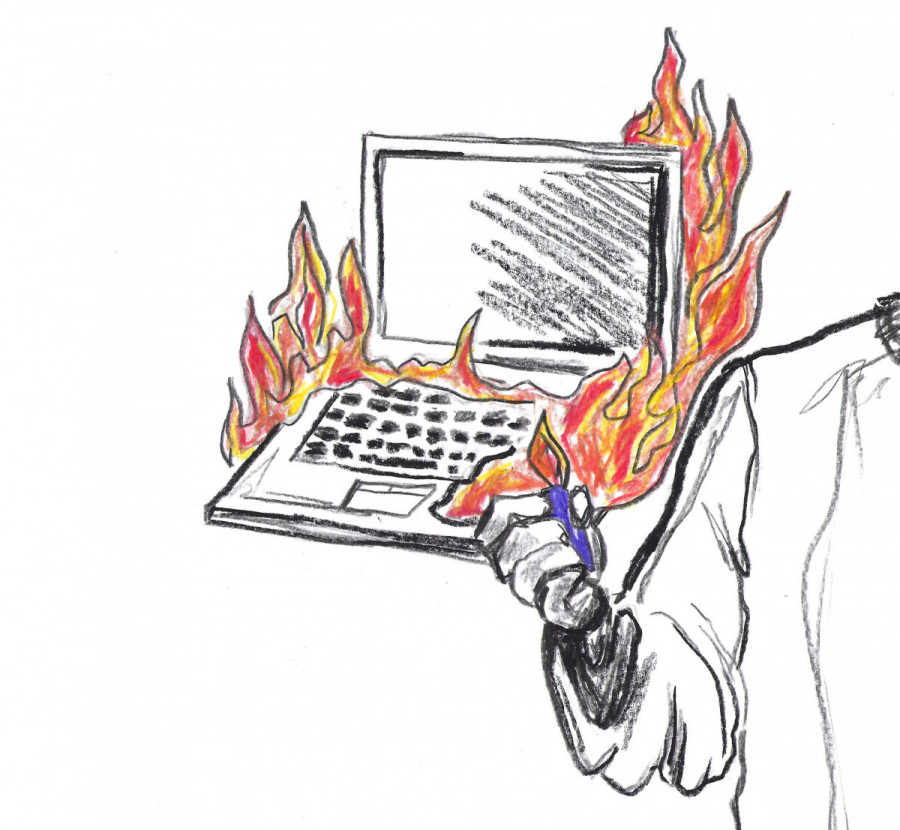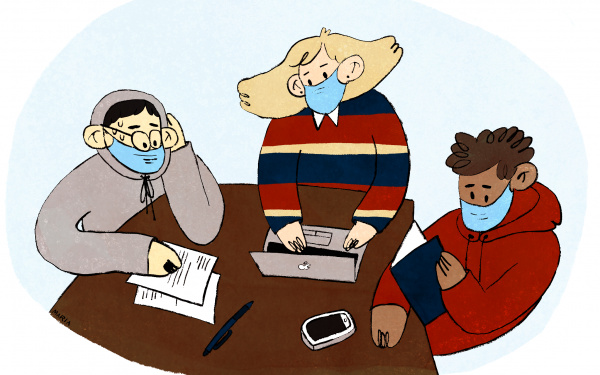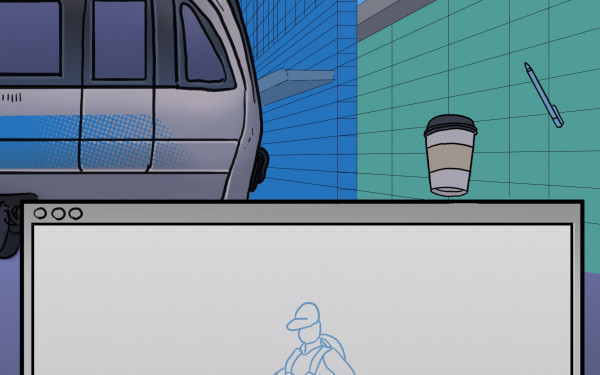Fahrenheit 451: Online textbooks edition
Why online textbooks will be the death of me
Digital textbooks make me want to throw my computer against a wall.
My increasing dislike for them urges me to write a Fahrenheit 451 sequel specifically dedicated to online textbooks. If I can’t burn them, I would gladly feed them to the internet’s black hole of forgotten things, for them never to be found again.
My problem with online texts does not reside in the fact that they are textbooks, that would be ridiculous. Professors are no stranger to assigning difficult readings, which I do not mind as they can be quite exciting to read at times. What I do mind though, is how I probably won’t get to enjoy said texts because the professor will only provide a virtual copy of it, especially now that classes are held online.
I would rather pay $60 for a textbook than spend hours reading a 35 page long PDF.
Studying is an art that not all students have mastered—I certainly have not. It is only recently that I have come to the realization as to why. Unlike assignments and exams, there is no definite deadline for assigned readings of textbook chapters. Are they helpful in understanding the material better? Of course they are, but without a deadline to pressure me into doing my readings, they simply become an idea of a task. A mindless thought hanging in the back of my mind.
The only thing that saves me from wasting the use of an expensive textbook is the visual reminder it creates. I am a forgetful person, and not having the textbook someplace visually accessible will make me forget its existence entirely. When I realized I would have to use digital textbooks, I knew I was doomed as I would simply forget their existence because of their lack of physicality.
I would rather pay $60 for a textbook than spend hours reading a 35 page long PDF.
I am someone who needs something concrete and sturdy that I can rely on and familiarize myself with. When I do find the concentration and motivation to get a study session going, a learning tool that really helps me is annotating and highlighting. Writing notes I took in class on a textbook page—to add context and helpful information—is not something I can do with online books. Although some PDFs allow you to highlight certain parts of a text, the impersonality of online textbooks makes me feel disconnected from them and less inclined to actually read the material.
Not to mention that having virtual textbooks results in me being on my computer twice as much. How am I supposed to relax while being on my computer when my eyes can’t handle the aggressive glow of my computer screen anymore?
And don’t even get me started on photocopied texts converted into PDFs. Having to differentiate between the page number provided by a pdf and the actual page number of the provided textbook is one thing. Having to swipe my mouse from left to right, trying to read the hidden parts of a text and seeing how little space is granted between the lines, as I have to zoom in on the text to read it clearly, is another one entirely.
I can only stay scrunched up like a goblin—reading an incomprehensible text I can’t highlight or annotate—for so long before my back starts to hurt. If that doesn’t take me out, the strain in my eyes will—and I don’t know about you, but neither of those options sounds very healthy to me in the long run.
I will admit that I am in an extremely privileged position, to even be able to complain about why virtual texts are so evil to me, but I find no real pleasure in doing so. When I purchase an expensive textbook, only two things keep me from regretting such a decision. The first is knowing that my eyes will thank me for it, and the second is finding comfort in the fact that I have the possibility to regain the money I spent by selling my books to other students.
With that being said, dragging down online textbooks is but a fleeting moment of joy. I will eventually have to face them if I want to pass my classes, one sticky note reminder at a time.







